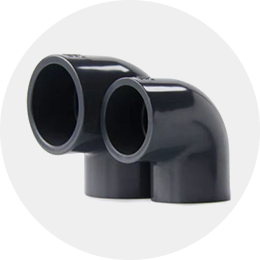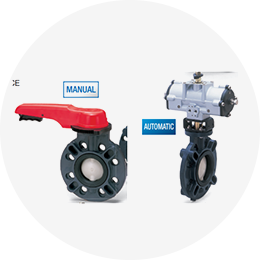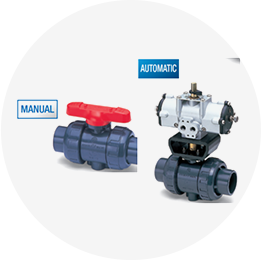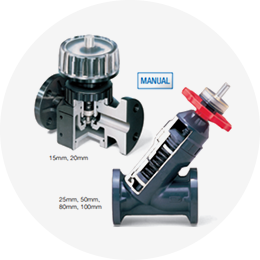Product
 Home Product
Home Product PIPING SYSTEM
CPVC (Chlorinated Polyvinyl Chloride)
CPVC pipe system is a thermoplastic plastic that has dramatically improved heat resistance, pressure resistance, impact resistance, mechanical strength, and corrosion resistance by adding chlorination reaction to existing PVC. By increasing the chlorine content by about 10% compared to general PVC, it can be used at a temperature about 30°C higher than existing PVC. In addition, it has excellent chemical resistance and a very smooth internal surface, so there is very little scale accumulation in the fluid being transported, so it is widely used in piping for water treatment, chemical treatment, hot and cold water, and firefighting.

-
01
- Size Range
- 0.5 ~ 16inch
-
02
- Temperature
- -0 ~ 90°C
-
03
- Welding type
- Bonding, Mechanical type
-
04
- Pressure rating
- 16 bar
Advantages
-
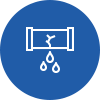
- Corrosion resistance
- CPVC does not corrode due to its strong corrosion resistance to chemicals such as various acids, alkalis, salts, etc., and it can be used hygienically as it is an antibacterial material that suppresses the formation of bacteria.
-

- Self-extinguishing
- CPVC requires three times the amount of oxygen currently in the air on Earth to burn. Therefore, if a fire occurs, it does not catch fire. The outer wall of the sprinkler turns black like charcoal, but the inner wall is undamaged, allowing the sprinkler to operate safely.
-
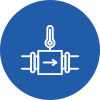
- Low thermal conductivity
- CPVC has low thermal conductivity and has excellent thermal and cold insulation effects, preventing condensation from occurring.
-

- Eco-friendly
- CPVC and joint bond are eco-friendly materials that are harmless to the human body and the environment.
-
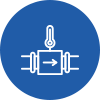
- Thermal Resistance
- Service range 0 °C - 90 °C
-

- Insulation
- Non-conductive (immune to galvanic corrosion) No condensation problems Minimum heat loss
-

- Smooth inner surface
- There is no scale inside the pipe due to the very low coefficient of friction between the fluid and the inner surface of the pipes, thus it reduces the internal pressures.
Applications
-
 Chemicals
Chemicals -
 Semiconductor
Semiconductor -
 Secondary battery
Secondary battery -
 Medicine/Pharmaceutical
Medicine/Pharmaceutical -
 Water treatment
Water treatment
PIPES
Click the Icon to redirect to the blog.
FITTINGS & VALVES
Click the Icon to redirect to the data library.


